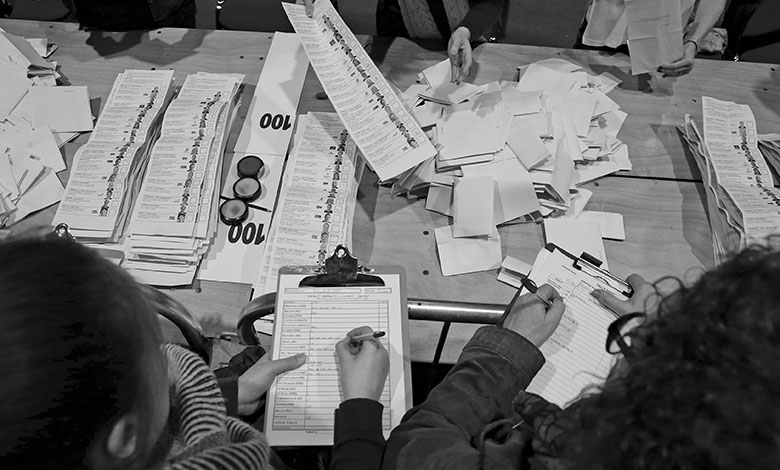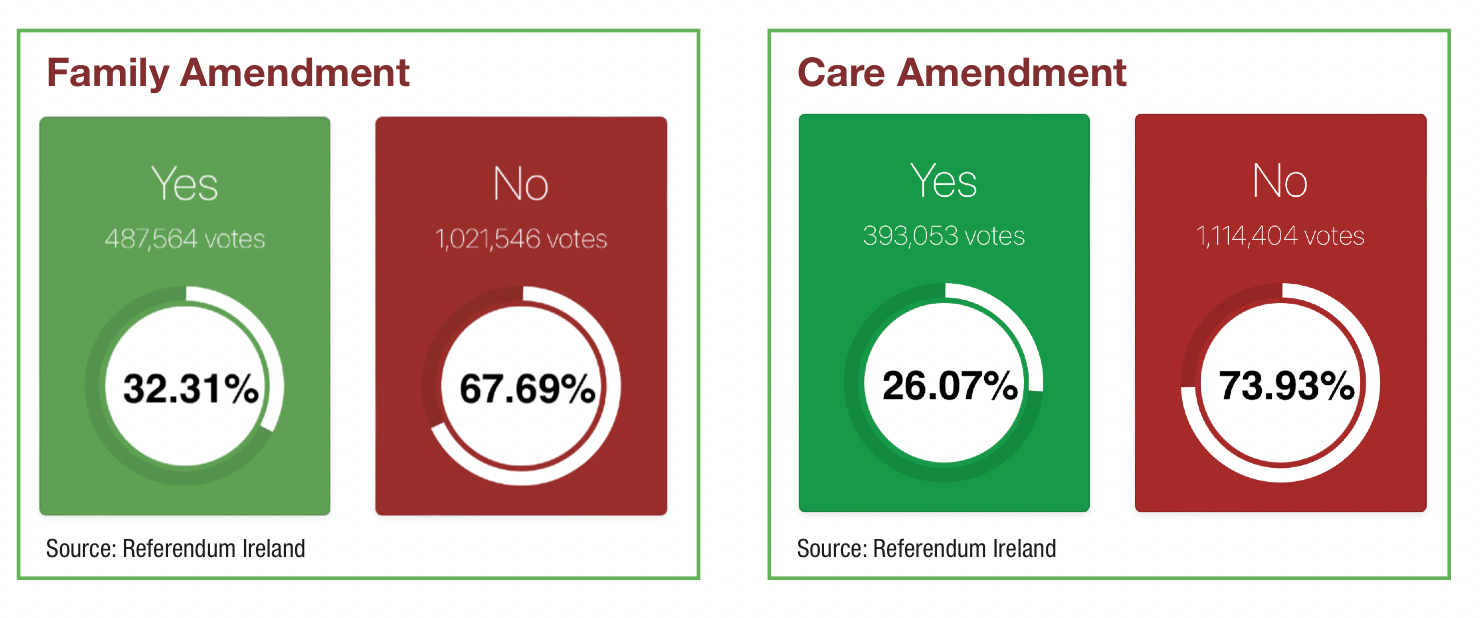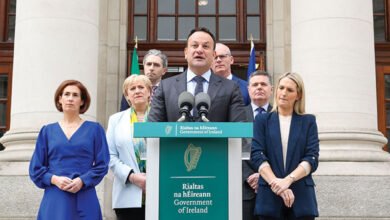No-no: Voters overwhelmingly reject constitutional change

Proposed amendments to Bunreacht na hÉireann on care and family were definitively rejected in March 2024.
On International Women’s Day – chosen specifically for the occasion – over 1.5 million voters took to the polling stations, equating to a turnout of just over 44 per cent.
Voters rejected the amendments with 67 per cent voting níl/no in the Family referendum and 74 per cent níl/no in the Care referendum.
The last time a referendum had been defeated was in 2015 when the Fine Gael/Labour coalition proposed to reduce the age of presidential candidacy from 35 to 21.
The Family Amendment
The Family Amendment or the proposed 39th Amendment sought to redefine the concept of “family” in the Constitution.
The 39th Amendment to the Constitution comprised two proposed changes. Firstly, the insertion of additional text and secondly, two proposed changes. The new text would have read as follows.
Article 41.1.1°: “The State recognises that the family, whether founded on marriage or other durable relationships, as the natural primary and fundamental unit group of society, and as a moral institution possessing inalienable and imprescriptible rights, antecedent and superior to all positive law.”
There was also a proposed change to Article 41.3.1° by deleting the text “on which the Family is founded,” to instead read, “the State pledges itself to guard with special care the institution of Marriage and protect it against attack”.
These changes would have altered the constitutional meaning of ‘family’, and which would then be described as a relationship between two people without distinction as to their sex and would have covered different types of committed and continuing relationships other than marriage. This would have meant that different family units would have the same constitutional rights and protections.

The Care Amendment
Furthermore, the Care Amendment or the proposed 40th Amendment would have deleted an existing part of the Constitution and inserted new text about care provided by family members.
The 40th Amendment to the Constitution proposed deleting the existing Articles 41.2.1° and 41.2.2° and inserting a new Article 42B. The new text would have read as follows:
“The State recognises that the provision of care, by members of a family to one another by reason of the bonds that exist among them, gives to Society a support without which the common good cannot be achieved, and shall strive to support such provision.”
This amendment was ostensibly aimed at recognising the importance to the common good represented by the care provided by family members to each other and also recognise the importance to the common good of the life of women within the home.
Fallout
Speaking in the aftermath of the concurrent votes, then-Taoiseach Leo Varadkar TD acknowledged the defeat saying: “I think we struggled to convince people of the necessity or need for the referendum at all, let alone the detail or wording and obviously that is something we are going to have to reflect on.”
Furthermore, Fine Gael’s Simon Coveney TD defended the party’s decisions stating: “I would not say that we were out of touch with the electorate.”
Despite tacitly backing the changes, Sinn Féin President Mary Lou McDonald TD insisted that responsibility for the no-no vote rested solely with the Government which “went on a solo run on these matters”.
The Dublin Central TD said she as Taoiseach would run the family and care referendums again with the Citizens’ Assembly’s suggested wording in government if elected. “They failed to collaborate in any way, and they also failed to convince the electorate,” she said.
Additionally, Fianna Fáil politician Willie O’Dea TD explained his views on voters rejecting the changes: “People were confused as to why, when the country had so many problems to be getting on with in relation to lack of housing, healthcare and law and order, why the Government were diverting time and energy on these referenda for which there were no popular demand.”
Similarly, despite Labour’s advocacy for a yes-yes vote, leader Ivana Bacik TD asserted that it was a “lacklustre campaign” and stated that the “responsibility for a disappointing result lies with government”.
“They chose a wording for these two referendums that differed so significantly… and why having chosen that wording did they not mount a more assertive campaign to sell it to people,” she stated.





